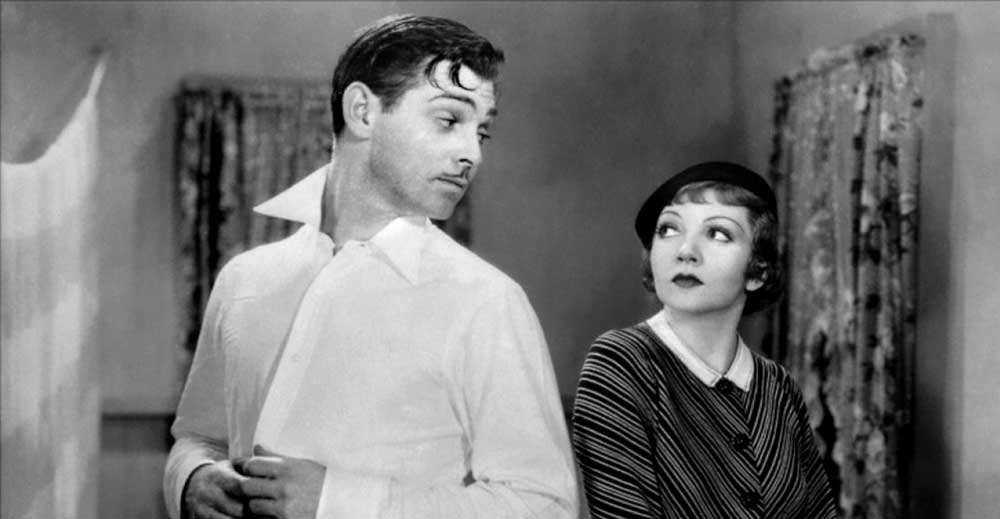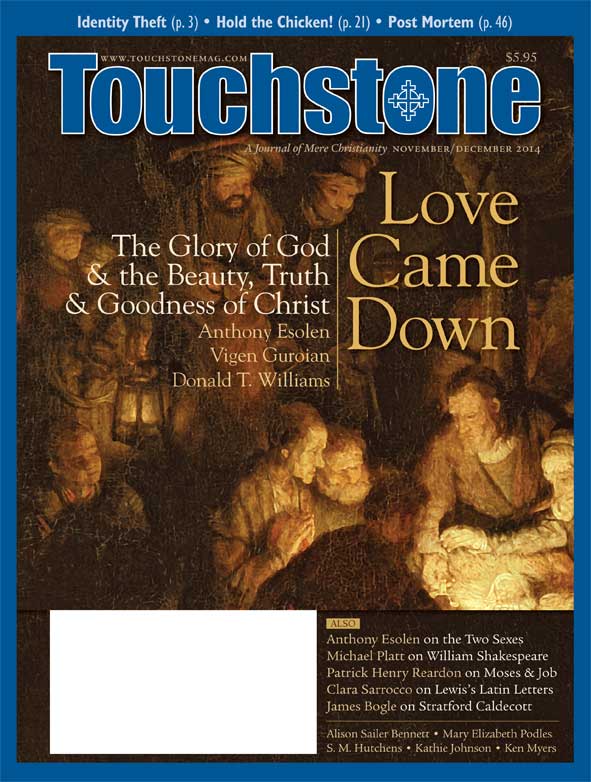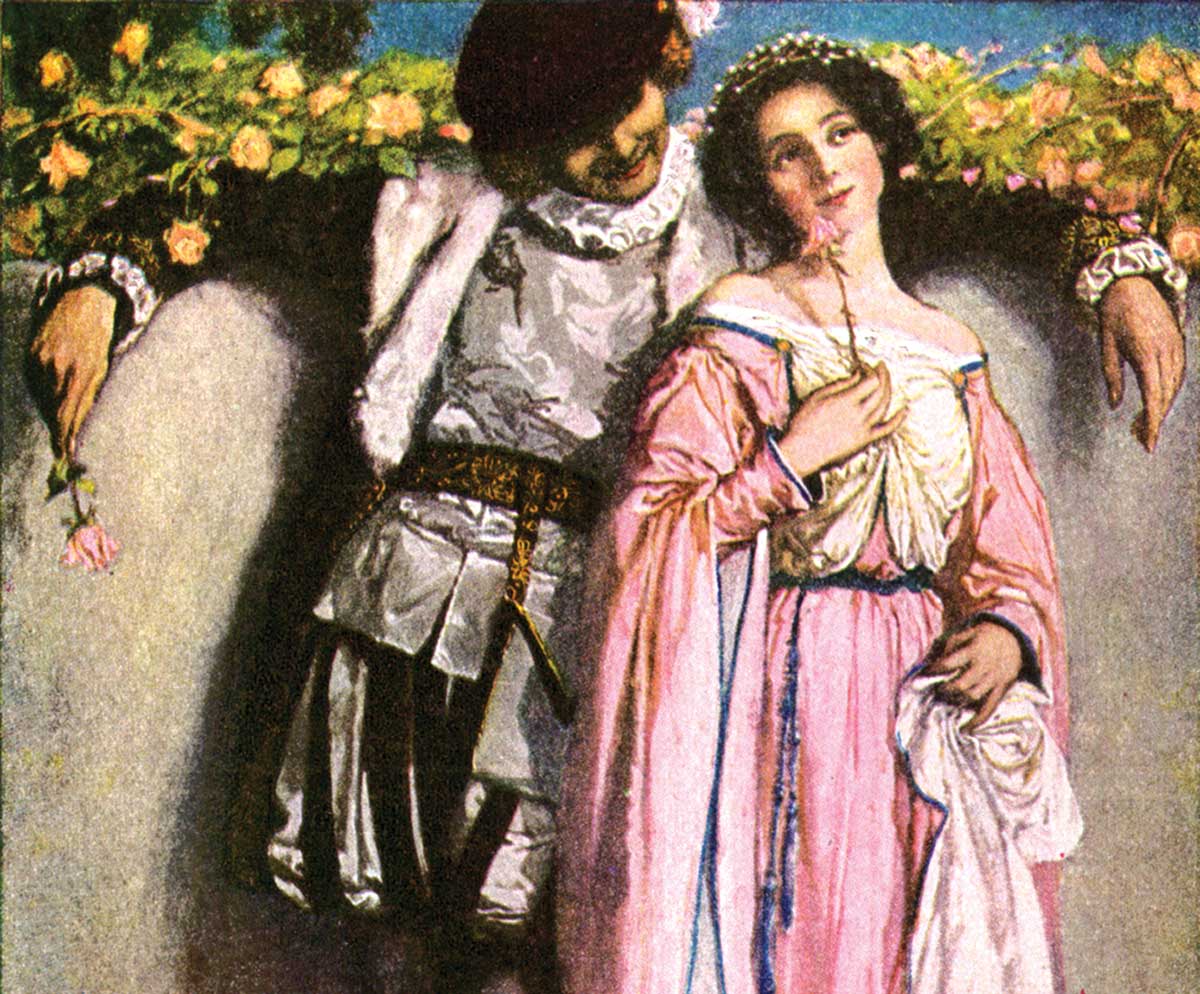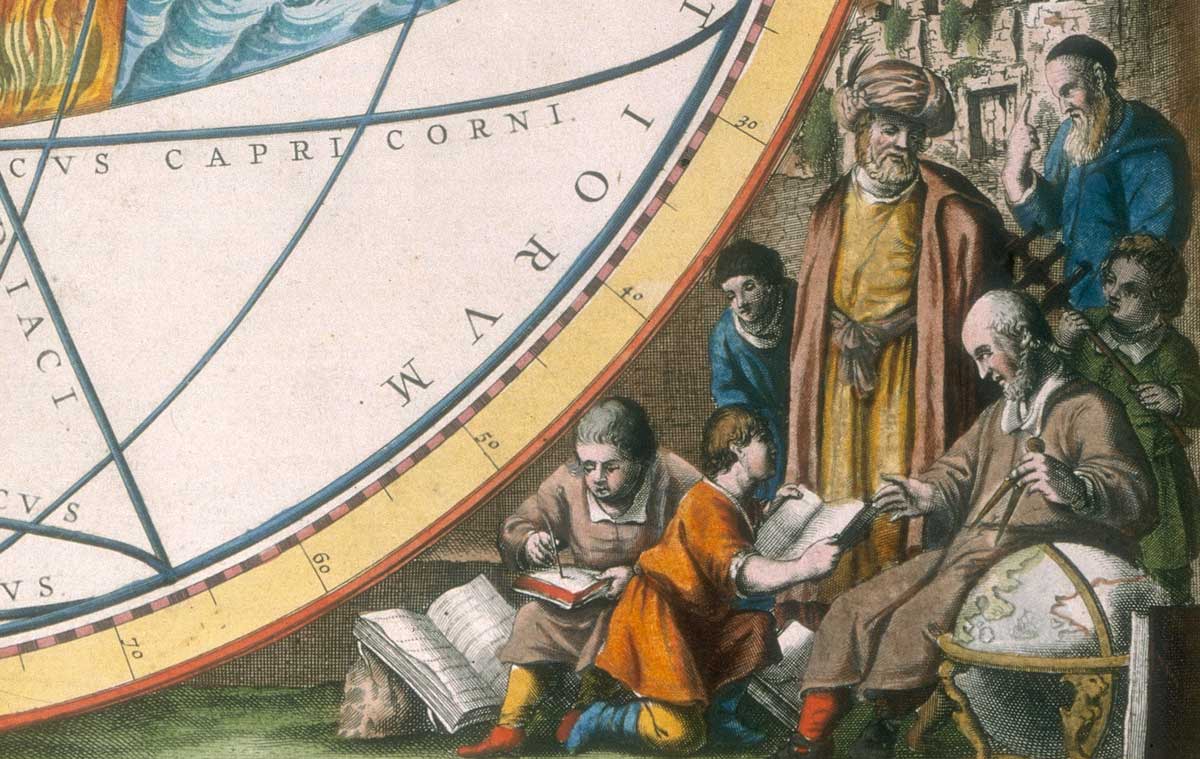Feature
Tales of Forbidden Stereotypes
Real-Life Men & Women & the Tragic Loss of Human Comedy
Among the many nerve-scraping scenes in the movie The Lord of the Rings, there's one that especially makes clear to me why much of our art will be consigned to a deserved oblivion.
Aragorn, destined to return as the king of Gondor, is in ponderous conversation with Arwen, the Elvish woman who renounces immortality to become his wife. The lighting is dim, and the colors behind them are forty shades of somber. Arwen has just played the sweaty warrior princess to save Aragorn and his friends from a surprise attack—though Tolkien wrote no such thing. Now Aragorn is wondering whether he has it in him to be king, so he expresses his ponderous doubts to this sharp-boned razor of strength—though Tolkien assigns to Aragorn no such doubts. Aragorn's alias was Strider, not Ditherer. Arwen talks to him half-man to half-man, after which they kiss long and dispassionately, with all the electricity of a piece of plastic coming in contact with a piece of plastic.
Or there's the scene in Titanic (1997), in which pretty boy Leonardo DiCaprio, supposedly playing a kid who has just been sleeping under bridges, is trying to persuade rich pretty girl Kate Winslet to let him pull her up over the edge of the ship, mid-suicide. "You don't want to do this," he says, as if he were a volunteer on the telephone at the Good Samaritans, and not somebody with strong arms who could restrain her on the instant and holler for help. Later she will ask him to teach her how to spit like a man. The culmination of modern feminism: a semi-girl asking a semi-boy how to behave like a caricature. She's going to marry a rich man, hiss hiss, whom she doesn't love. What's the solution? One two three four, show the villain out the door, five six seven eight, find a punk and fornicate.
A Real Man & Woman
Take by contrast—anything, really, but let's go to It Happened One Night. A brash but lonely newspaper reporter has stumbled upon the socialite story of the year. She's the daughter of a self-made millionaire, on the run from her sheltered life and her father, who does not want her to marry the rich narcissist who has been courting her. She wants to return incognito to New York, and the reporter is helping her in exchange for the exclusive story, though it soon becomes clear that they are falling in love with one another, and that he really is the man she ought to marry.
The problem for their secret trip north is simple enough. They don't have any wheels, they don't have any food, and they don't have any money. So, after a rough night which they spend sleeping—separately—under some hay in a field, and after a breakfast of a couple of limp carrots he's dug up, he is trying to demonstrate to her his three sure-fire methods for hitching a ride. He's been her protector, after all, and boys like to show off in front of girls. But this time his sure-fire methods fail comically, one after another, as cars go whizzing by, until he is finally reduced to a vulgar gesture of frustration.
She's sitting on a fence, enjoying the scene. "Let me try," she says. "I bet I can get us a ride right away."
"You?" he says. "What do you know about it?"
She replies that she knows a trick of her own. So she stations herself at the side of the road, and when the next car comes she leans over and pulls up her skirt along one slender and stylish leg. The car screeches to a halt. The reporter looks on with wide eyes—and it isn't just that he is surprised that the strategy worked.
Clark Gable and Claudette Colbert are electric in their roles, and not because Gable had classic good looks (he didn't), or because Colbert was some sultry southern bathing beauty with parted lips and sand in her hair (she wasn't). They were electric because he was a man and she was a woman.
Anthony Esolen is Distinguished Professor of Humanities at Thales College and the author of over 30 books, including Real Music: A Guide to the Timeless Hymns of the Church (Tan, with a CD), Out of the Ashes: Rebuilding American Culture (Regnery), and The Hundredfold: Songs for the Lord (Ignatius). He has also translated Dante’s Divine Comedy (Random House) and, with his wife Debra, publishes the web magazine Word and Song (anthonyesolen.substack.com). He is a senior editor of Touchstone.
bulk subscriptions
Order Touchstone subscriptions in bulk and save $10 per sub! Each subscription includes 6 issues of Touchstone plus full online access to touchstonemag.com—including archives, videos, and pdf downloads of recent issues for only $29.95 each! Great for churches or study groups.
Transactions will be processed on a secure server.
more on sex from the online archives

28.2—March/April 2015
Man, Woman & the Mystery of Christ
An Evangelical Protestant Perspective by Russell D. Moore

27.6—Nov/Dec 2014
Tales of Forbidden Stereotypes
Real-Life Men & Women & the Tragic Loss of Human Comedy by Anthony Esolen
more from the online archives
calling all readers
Please Donate
"There are magazines worth reading but few worth saving . . . Touchstone is just such a magazine."
—Alice von Hildebrand
"Here we do not concede one square millimeter of territory to falsehood, folly, contemporary sentimentality, or fashion. We speak the truth, and let God be our judge. . . . Touchstone is the one committedly Christian conservative journal."
—Anthony Esolen, Touchstone senior editor












